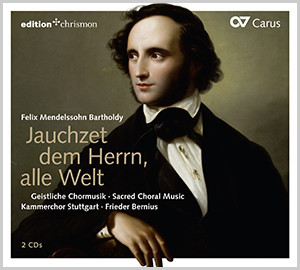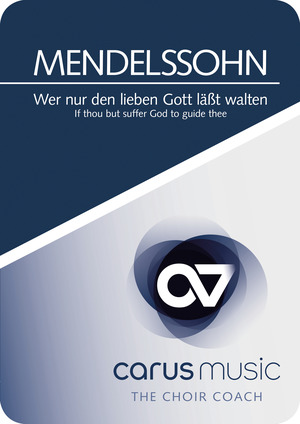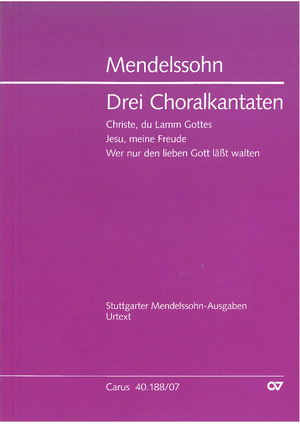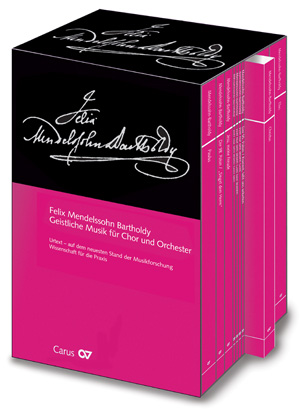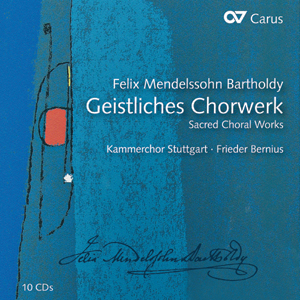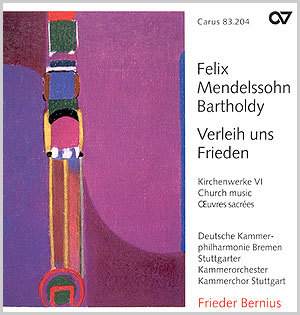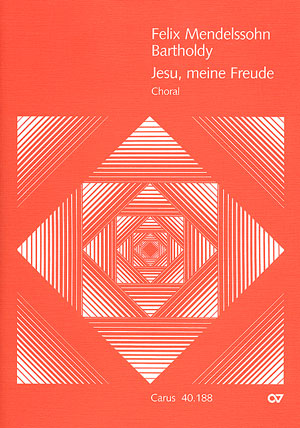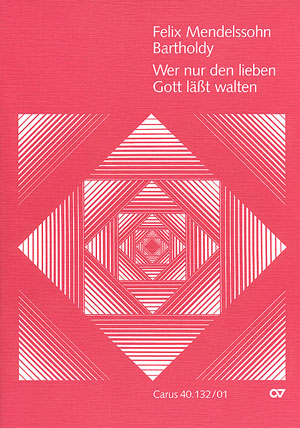
Contents
-
Composer
Felix Mendelssohn Bartholdy
| 1809-1847
-
Editor
Thomas Christian Schmidt
-
Songwriter / Librettist
Johann Georg Neumark
| 1621-1681
Reviews
Mendelssohn-Bartholdy, Felix: „Wer nur den lieben Gott läßt walten”
Mendelssohn-Bartholdy, Felix: „Wer nur den lieben Gott lässt walten”
Wer auf der Suche nach „praxisgerechter” (im Sinne von gut zu bewältigendem Schwierigkeitsgrad, Dauer und Finanzierbarkeit) Literatur ist, kann erleichtert aufatmen: ein überschaubares Werk mit einleitendem schmucklos-homophonem Choral, eine zweite motettische Choralbearbeitung, eine liedhaft-schlichte Sopranarie und ein abschließender Choral (bis auf vier Takte vom Chortenor unisono zu singen) mit einfacher Streicherbesetzung von 13-minütiger Dauer über den Choral „Wer nur den lieben Gott lässt walten” liegt in einer gewohnt guten Carus-Edition mit ausführlichem Vorwort und kritischem Bericht vor. Die Aufführung einzelner Teile macht eine Verwendung für Liturgie und Konzert möglich. Sehr empfehlenswert!
Werner Schepp
Quelle: Musik im Bistum Essen 1/1998, S.36
Frequent questions about this work
 There are no questions and answers available so far or you were unable to find an answer to your specific question about this work? Then click here and send your specific questions to our Customer Services!
There are no questions and answers available so far or you were unable to find an answer to your specific question about this work? Then click here and send your specific questions to our Customer Services!


